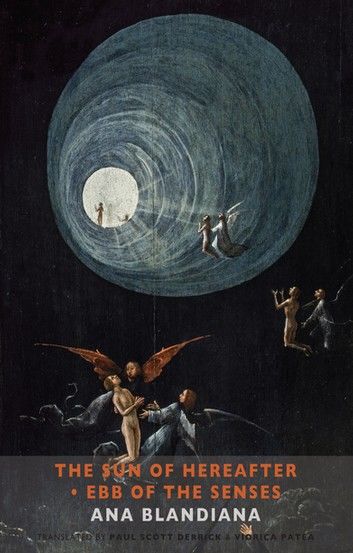| FindBook |
有 1 項符合
The Sun of Hereafter • Ebb of the Senses的圖書 |
 |
The Sun of Hereafter • Ebb of the Senses 作者:Ana Blandiana / 譯者:Paul Scott Derrick,Viorica Patea 出版社:Bloodaxe Books 出版日期:2017-11-23 語言:英文 |
| 圖書館借閱 |
| 國家圖書館 | 全國圖書書目資訊網 | 國立公共資訊圖書館 | 電子書服務平台 | MetaCat 跨館整合查詢 |
| 臺北市立圖書館 | 新北市立圖書館 | 基隆市公共圖書館 | 桃園市立圖書館 | 新竹縣公共圖書館 |
| 苗栗縣立圖書館 | 臺中市立圖書館 | 彰化縣公共圖書館 | 南投縣文化局 | 雲林縣公共圖書館 |
| 嘉義縣圖書館 | 臺南市立圖書館 | 高雄市立圖書館 | 屏東縣公共圖書館 | 宜蘭縣公共圖書館 |
| 花蓮縣文化局 | 臺東縣文化處 |
|
|
Ana Blandiana is one of Romania’s foremost poets, a leading dissident before the fall of Communism, and now her country’s strongest candidate for the Nobel Prize. A prominent opponent of the Ceausescu regime, Blandiana became known for her daring, outspoken poems as well as for her courageous defence of ethical values. Over the years, her works have become the symbol of an ethical consciousness that refuses to be silenced by a totalitarian government.
This new translation combines her two collections, The Sun of Hereafter (2000) and Ebb of the Senses (2004), both written after the fall of the Iron Curtain while Blandiana was actively and selflessly involved in the public sphere as President of the Civic Alliance (1990-2001), a non-political organisation that made possible Romania’s integration into the European Union. These two books mark a turning point in Blandiana’s poetic evolution: they lead towards a new conception of poetry as a reflection on being that culminates in My Native Land A4 (first published in Romania in 2010 and published in English by Bloodaxe in 2014).
After 1989, the motifs of her poetry remain the same but they acquire a more universal dimension. For Blandiana, the writer is less a creator than a witness of the world she inhabits. She believes that poetry records the experience of one’s time and insists that it is ‘not a series of events, but a sequence of visions’.
Blandiana’s poetry oscillates between the sensual perception of the world and a nostalgia for transcendence. Enigmatic definitions alternate with a series of coded questions charged with melancholic gravity. In fact, her poetry could be seen as a quest for definitions reached through a series of questions. Her poems describe the degradation of humanistic values and the different ways in which the individual is threatened. They express a yearning for a state of primordial purity and an awareness of destructive forces which the self must confront.
'Blandiana is a pure lyricist, focused entirely on the event of how imagination finds words and rhythms that make certain mental experiences memorable. Her poems characteristically achieve strange precisions by having pervasive metaphors unfold her sense of "sacred void" as negative plenitude.' – Charles Altieri, UC at Berkeley
|











